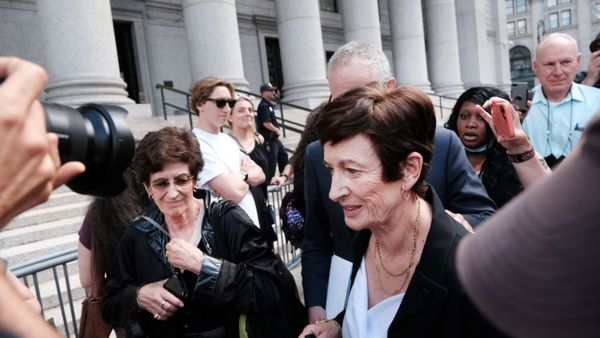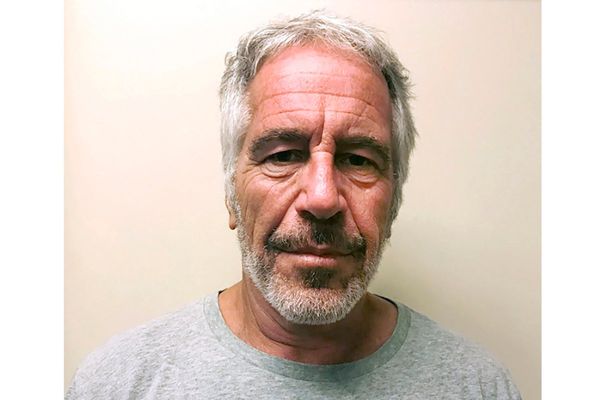
Donald Trump had good reason to believe he found the man to get him off the hook. Joseph Tacopina, a Brooklyn-born former prosecutor, made his name winning freedom for accused killers, rapists and celebrities.
Twelve years ago, he successfully defended an on-duty police officer charged with escorting a drunk woman to her home and then raping her. He won an acquittal for one of the New York cops accused of the notorious beating and sodomising of a Haitian American, Abner Louima, while others involved went to prison.
Perhaps most notoriously Tacopina was able to extract Joran van der Sloot from jail in Aruba where he was accused of murdering a teenage American tourist, Natalee Holloway. Van der Sloot went on to murder another woman in Peru.
As a law student, Tacopina even worked on the team representing the mafia boss John Gotti, although he has since sworn off acting for the mob in part because it extorted protection money from the family’s store. Tacopina maintains the link with his roots as the owner and chair of an Italian league football club, Spal. He also has a stake in a top-flight team, Roma, and previously served on its board.
Whether Tacopina has been as effective in defending Trump as some of his other clients will be decided next week by the New York jury hearing the advice columnist E Jean Carroll’s civil claim that the former president raped her in 1996. She is also seeking damages for defamation after the former president called her a liar and claimed her accusation was politically motivated.
But Tacopina’s approach has raised more than a few eyebrows in the legal community and left some spectators in court aghast at outdated tactics that look to have bolstered Carroll’s case. The judge, Lewis Kaplan, has certainly done little to hide his irritation at Tacopina at times, including over convoluted questions eliciting confusing answers.
The jury may yet hand Tacopina, and Trump, the last laugh. But it remains to be seen if the former public defender and prosecutor has persuaded its six men and three women of the claims he made in his opening statement.
Tacopina said he would not be calling defence witnesses because Carroll’s own words would destroy her claim to have been raped in a changing room of New York’s high-end Bergdorf Goodman department store 27 years ago. He said he would then show that Carroll is at the heart of a political conspiracy to destroy the reputation of a man who has, arguably, already blitzed it himself.
The first part did not go well when Carroll gave evidence for three days at the beginning of the trial. The former Elle magazine advice columnist proved to be a formidable witness who turned Tacopina’s attempts to portray inconsistencies in her story to her advantage.
Yes, Carroll said, she had offered four different reasons over the years for why she didn’t scream while Trump was allegedly attacking her. But her inability to settle on one reason was not evidence that she was lying.
“You can’t beat up on me for not screaming,” Carroll pushed back.
“One of the reasons women don’t come forward is because they’re always asked: ‘Why didn’t you scream?’ Some women scream. Some women don’t. It keeps women silent.”
Besides, she said, if she was going to lie, then the easiest thing would have been to say she did scream.
That single answer rocked Tacopina’s case not least because it exposed the pugilistic lawyer’s often brutal style in challenging women who allege they have been sexually assaulted. In 2011, he won acquittal for a police officer accused of raping a drunk woman by portraying her as grasping for money and mentally unstable. Tacopina claimed her sexual history supported the police officer’s claim that she had tried to seduce him after he delivered her to her home.
It’s an approach that sits even less well today than it did back then, and is made visible by the line of men at the defence lawyers’ table in contrast to the women leading the case for Carroll.
Still, Tacopina pressed on with the strategy. He asked Carroll so many times why she hadn’t called the police that the judge eventually told him that was enough and to “move on”. By then, Carroll had confidently made the case that she was too “ashamed” of having been assaulted to go running to the police even if that’s what she advised women who have been attacked to do in her agony aunt column in Elle.
“I was born in 1943. I’m a member of the silent generation. Women like me were taught to keep our chins up and to not complain,” she said. “I would never call the police about something I am ashamed of.”
If Carroll’s own words had destroyed her case, as Tacopina promised they would, it was not immediately evident.
Perhaps out of desperation, Tacopina then asked Kaplan to declare a mistrial over what he described as the judge’s “unfair and prejudicial rulings”, the mischaracterising of evidence in Carroll’s favour, and permitting evidence from another woman who accused Trump of sexual abuse. The judge rejected the demand without comment.

That left the second part of Tacopina’s strategy as other witnesses gave evidence.
In his opening statement, Trump’s lawyer said Carroll conspired with two of her friends to falsely accuse the former president of rape because they “hate” him for winning the 2016 election. Those two friends, Lisa Birnbach and Carol Martin, have told the court they were the only people Carroll told about the alleged attack when it occurred.
The pair told the jury that the advice columnist then swore them to secrecy and they respected her wishes, never mentioning the alleged rape again, until Carroll went public with her accusations against Trump in 2019.
Tacopina argues that the three of them have cooked up a gigantic lie.
“They schemed to hurt Donald Trump politically,” he said.
Tacopina’s cross-examination of Martin, a retired television anchor, was a key plank of this strategy. By the time it was over, it looked to have defeated its own purpose.
Martin testified that Carroll had told her about the alleged rape during a conversation in the television anchor’s kitchen within a day or two of the attack. Tacopina then confronted Martin with a string of emails in which she calls Trump the “enemy” and says he “needs to be put away”.
“I hate this man who is ruining the world, putting his stank all over it,” she wrote in one message. In another, Martin said she “despised” the former president.
Tacopina’s aim was clear – to show that Martin so disliked Trump she was prepared to conspire against him and lie about it in court. There was even an email from September 2017 that skirted close to conspiratorial language.
“This has to stop. As soon as we’re both well enuf [sic] to scheme, we must do our patriotic duty again,” Martin wrote to Carroll.
The advice columnist replied: “TOTALLY!!! I have something special for you when we meet.”
Could this be the smoking gun? Was the “something special” Carroll’s plan to falsely accuse Trump of rape?
Martin told the court she thought Carroll was talking about a present, a squirrel the advice columnist gave her grandson.
“Not a live one,” she hastened to add, prompting a rare burst of laughter in court.
Still, Tacopina had successfully painted Martin as deeply hostile to Trump in the hope of sowing doubt about her reliability as a witness. The jury heard that Carroll even had a party to celebrate the filing of her lawsuit against the former president.
But Tacopina did not stop when he was ahead.
To Martin’s considerable embarrassment, Trump’s lawyer began reading messages in which she was critical of Carroll behind her back after the Elle columnist went public with her accusations against the former president 23 years later.
Martin sent texts to her daughter complaining that Carroll was turning the pursuit of Trump “into a lifestyle” while enjoying the “adulation” it brought. She also said Carroll was “in too deep” when she sued Trump.
Martin had another concern – that Carroll going public had exposed her too, with implications for her safety and members of her family.
“It was difficult because people in my family were concerned about identification,” Martin told the court.
Martin admitted she was “venting frustrations” with Carroll.
But as embarrassing as it might have been for Martin, the text messages sabotaged Tacopina’s attempt to portray the women as conspiring. If Martin was part of the conspiracy to make up a claim of rape, why would she be so critical of publicising it?
Tacopina’s position was further undermined when Carroll’s lawyer, Roberta Kaplan, pushed the point by asking Martin about a text commenting that she had been dragged into this by “a simple chat 25 years ago”.
Was that not evidence that Carroll had indeed told Martin about the alleged attack?
At the beginning of the trial, Tacopina painted Carroll’s story as “an affront to justice”, wildly implausible and short of evidence. He accused her of pursuing the case for money, status and political reasons.
“It all comes down to: do you believe the unbelievable?” he said.
The jury will decide in the coming days.







